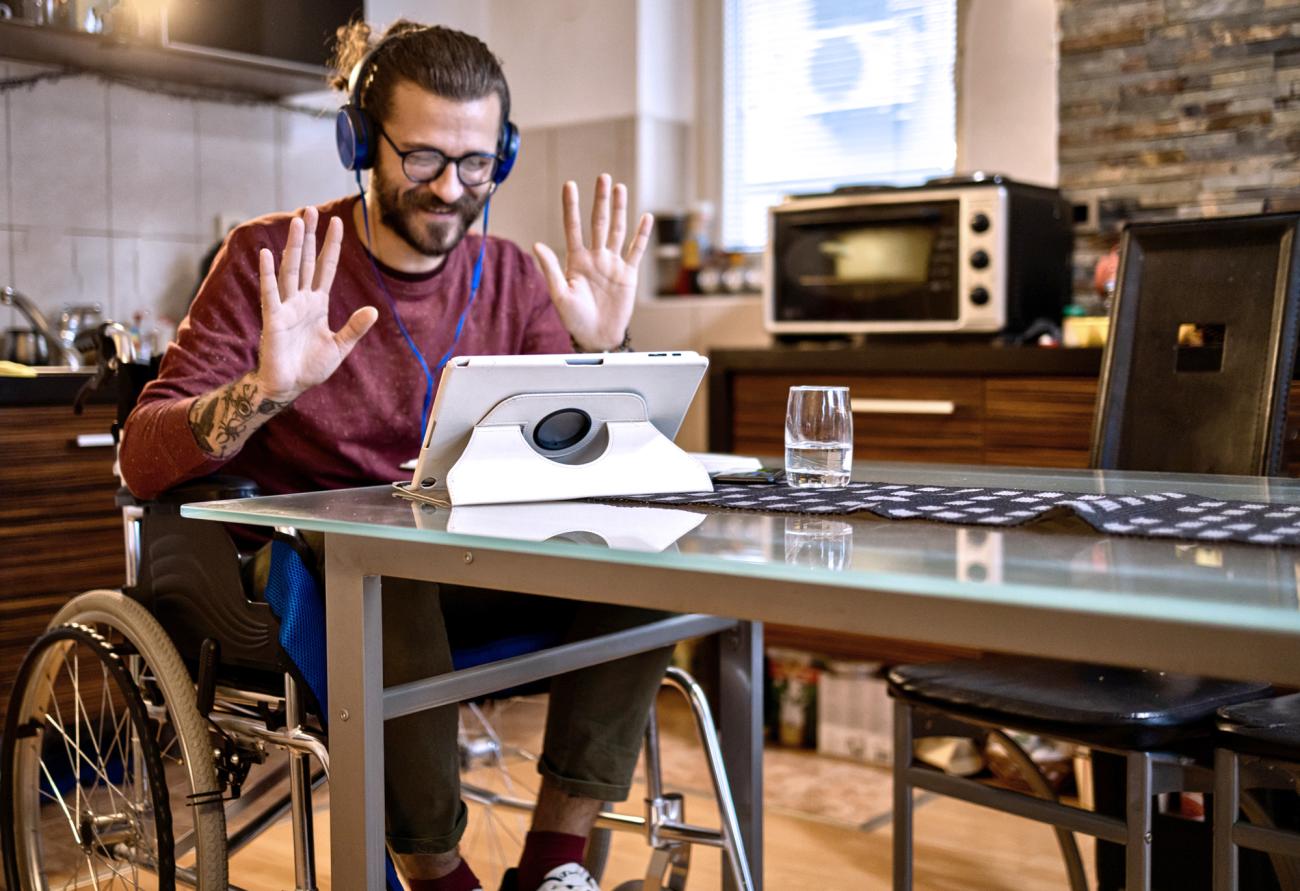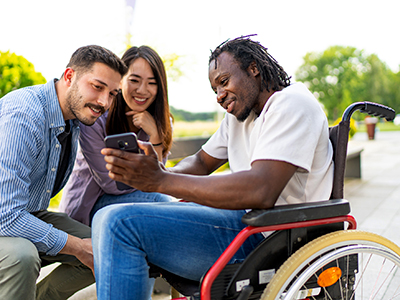
New avenues to build connections with others are being accessed by family members to alleviate some of the burden of caregiving.
Family members of individuals with spinal cord injury (SCI) often provide essential care to their loved ones, supplementing and augmenting health care system services. New research led by Vancouver Coastal Health Research Institute researchers Dr. Somayyeh Mohammadi and Dr. William Miller looks at the types of support family caregivers receive through social media. Their research showed that Family Caregivers of individuals with SCI (FC-SCI) turn to social media for informational and emotional support, as well as social companionship.
“Family caregivers often experience significant lifestyle changes as they learn how to provide care to someone living with an SCI,” notes Mohammadi. “These changes may leave little time for them to practise self-care.”

Approximately 86,000 Canadians live with an SCI, with around 1,785 being diagnosed with the condition each year. Over half of individuals with an SCI require assistance with daily living activities, a role that is most often filled by an immediate family member, such as a spouse.
Prior research has found a connection between FC-SCI and higher levels of perceived burden from the physical, emotional and financial demands of providing care. Family caregivers are prone to feelings of depression, anxiety, anger, helplessness and stress, says Mohammadi. These feelings are often intensified by higher demands on the caregiver’s time, social isolation and a sense of lacking choice in their caregiver role.

“Caregiver burden can lead to health, psychological and social problems that transform caregivers into ‘invisible patients’,” says Miller. “This, in turn, can impact the care they provide to people with SCI.”
Caregivers identify social media platforms as very important
For their research, published in Spinal Cord, Mohammadi and Miller sought to understand the role of social media in alleviating some caregiver burden and providing social connection and support.
“We knew that caregivers relied on social media, but we did not know to what extent, or what role social media played in their lives,” states Mohammadi.
“We wanted to know if social media acted as a social support, which can be a valuable tool to protect against caregiver burden by fostering connections with others, leading individuals to feel valued, cared for and engaged in the world around them,” adds Miller.
“Social media can be accessed from anywhere on a smart device, enabling someone to connect with others when it is most convenient for them.”
Researchers collected online surveys from 115 FC-SCI, most of whom were a partner or spouse of a person with an SCI. Participants reported engaging in around one to three hours of daily social media use, with Facebook use being the greatest, followed by Instagram and YouTube.

These results indicate the potential need for moderated social media supports for FC-SCI, says Mohammadi. She and other researchers are currently developing an online health module to provide online information to FC-SCI on such topics as how to access funding for providing care, information on caregiving and additional community-based tools for FC-SCI.
“We understand that social media has its problems, such as misinformation, so we want to ensure that we make available evidence-based guidelines and resources that caregivers find valuable,” says Mohammadi. “Family caregivers are a huge help in the lives of people living with an SCI, and it is important for us to assist them in continuing to provide this invaluable service, and also know how to take care of their own mental and physical well-being while providing care.”


